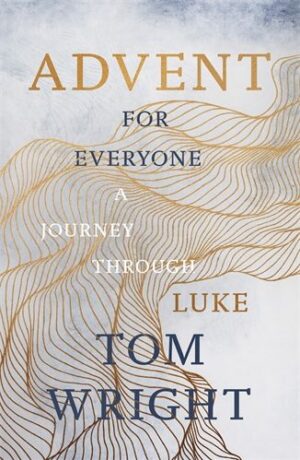



Zechariah’s Song of Praise: Luke 1.57–80
The time arrived for Elisabeth’s child to be born, and she gave birth to a son. 58Her neighbours and relatives heard that the Lord had increased his mercy to her, and they came to celebrate with her.
Now on the eighth day, when they came to circumcise the child, they were calling him by his father’s name, Zechariah. 60 But his mother spoke up. ‘No,’ she said, ‘he is to be called John.’ to be called. 63He asked for a writing tablet, and wrote on it, ‘His name is John.’ He’s come to his people and bought them their freedom. 69 He’s raised up a horn of salvation for us
in David’s house, the house of his servant, 70 just as he promised, through the mouths of the prophets, the holy ones, speaking from ages of old: 76 You, child, will be called the prophet of the Highest One, go ahead of the Lord, preparing his way, letting his people know of salvation, through the forgiveness of all their sins. The child grew, and became powerful in the spirit. He lived in the wilderness until the day when he was revealed to Israel.
Many people today can’t imagine what life would be like without a television. We are so used to it telling us what to think about all the time that, without it, some people become quite worried, lost in a world of their own un- familiar thoughts like an explorer whose guide has just disappeared. Take away radio, newspapers and smart- phones as well, and . . . what would you think about all day?
But behind these obvious concerns, there are deeper questions. Something is wrong in the world. People are suffering. Your people are suffering. Wicked foreigners have come from far away, with hatred in their eyes and weapons in their hands. Darkness and death have stalked the land. Many people in many countries have had all this to think about over many centuries.
Behind that again, there may be a sense that, though much has gone wrong, somehow there is a larger hope. Things can be put right. Things will be put right. Let go of this and you’re sunk. Often it’s the old people, the ones who cherish old memories and imaginations, who keep alive the rumour of hope.
Much of the poem could be read simply as the celebration of what we would call a ‘political’ salvation – though few ancient Jews, and not very many modern ones, would want to separate the secular from the sacred the way the modern West has done. But there are signs that Zechariah’s vision goes beyond simply a realigning of political powers.
God’s mercy, the forgiveness of sins, the rescue from death itself; all of this points to a deeper and wider meaning of ‘salvation’. Luke is inviting us to see that God, in fulfilling the great promises of the Old Testament, is going beyond a merely this-worldly salvation and opening the door to a whole new world in which sin and death themselves will be dealt with.
Luke’s long first chapter holds together what we often find easier to keep separate. At point after point he has linked his story to the ancient biblical record of Israel, to the patriarchs, kings, prophets and psalms. He is writing of the moment when the centuries-old story was going to come round a corner at last, out of darkness into sudden light. He never forgets this larger perspective; everything that he tells us about Jesus makes sense as the fulfilment of God’s ancient promises, the hope of Israel come to fru- ition at last.
Look again at Zechariah’s song of praise. Which parts of it do you think offer the most cause for joy and celebration?